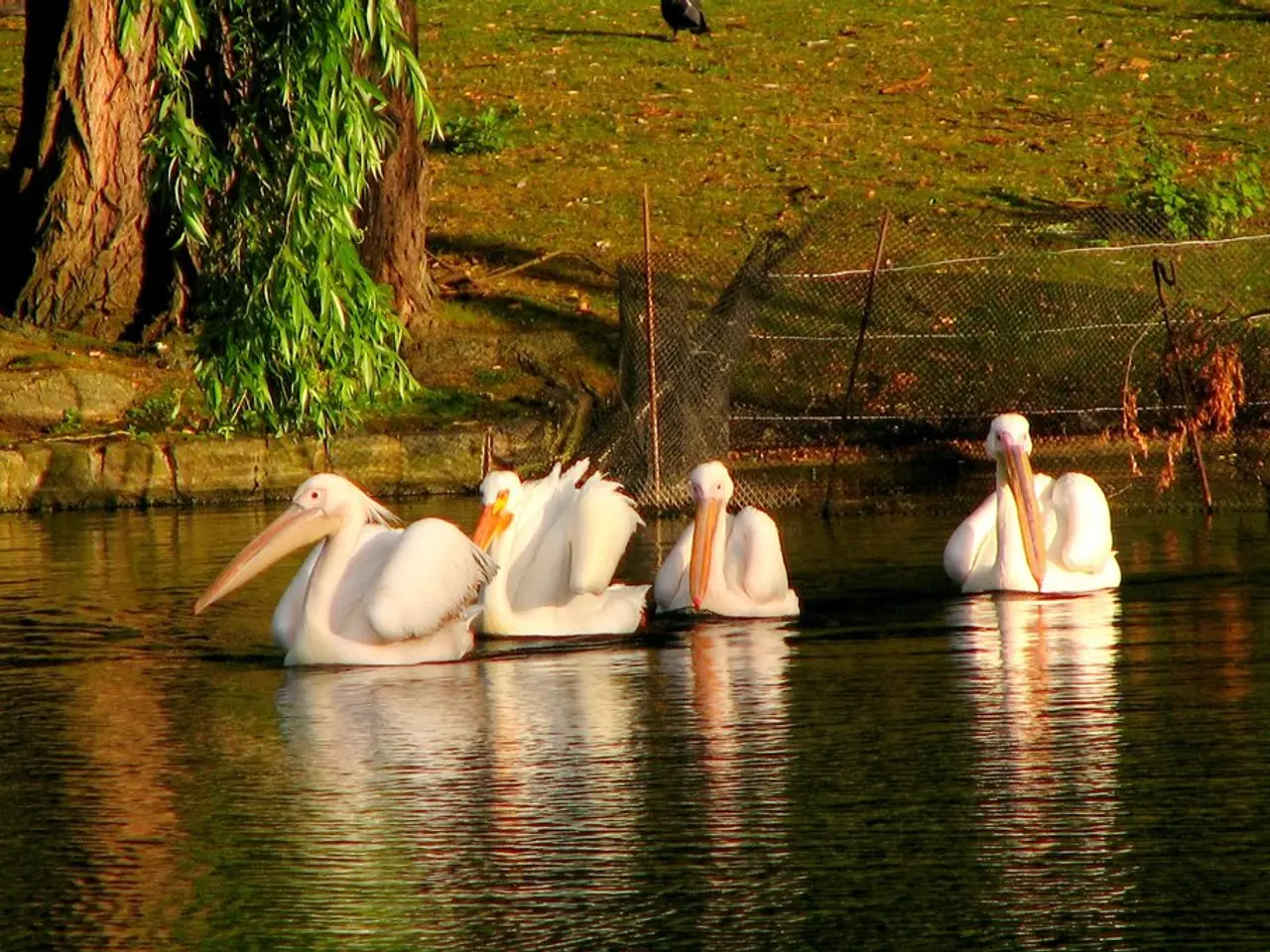Enactment and Administration of Laws targeting Counter-Constitutional Advocates within the Legislative Body - Rules for targeting opposition against the Constitutional order within the State Parliament (Landtag)
The Rhineland-Palatinate State Parliament is preparing for a significant day today, as it is expected to pass a new state hunting law at 9:30 AM. The new law reflects an effort to address urgent ecological and health issues through regulated hunting, but it faces significant public debate regarding its environmental and social consequences.
The new law is designed to support the rejuvenation of the forest, a vital aspect of Rhineland-Palatinate's ecological health. However, it has sparked controversy due to its implications for wildlife management, particularly in the context of African Swine Fever (ASF) outbreaks in wild boar populations.
The state has been grappling with ASF, with a reported case in Rhineland-Palatinate in 2024. This has led to the implementation of hunting restrictions and measures such as bans or limits on hunting, mandatory dog leashing, intensive carcass testing, and fencing to control the disease spread. The law aims to incorporate stricter surveillance and control measures against ASF and invasive species.
However, the law's approach to wildlife protection is not without controversy. Debates about hunting non-native species like the golden jackal, recently recorded for the first time in Rhineland-Palatinate, have stirred controversy. While some argue that hunting is necessary for ecological reasons, conservationists question the necessity and ethics of such practices, especially for protected or rare species.
The state parliament is also deciding on an amendment to its rules of procedure, proposed by the traffic light factions and the CDU faction. The aim of the changes is to ensure that only employees of fractions and members of parliament who pass a reliability test will receive money in the future. The vote on this amendment is not specified to be held by name.
The vote on the hunting law, however, will be held by name on the initiative of the AfD faction. The AfD has announced that it will challenge this amendment with all legal means, indicating potential opposition to the new law. The CDU faction is involved in proposing the amendment to the rules of procedure, but the AfD faction is not mentioned as being involved in this amendment.
Interestingly, a simple majority will now suffice for the recall of a committee chairperson, not a two-thirds majority, under the new rules of procedure. This change does not appear to face opposition from any specific group mentioned.
The passing of this new law and the amendment to the rules of procedure would mark a significant shift for the Rhineland-Palatinate State Parliament, breaking new ground in its legislative framework. The state's approach may influence broader regional policies and set precedents for how other German states and the EU handle similar challenges in wildlife management and hunting regulation.
As the state parliament convenes today, the debates surrounding the new hunting law and the rule changes promise to be intense and thought-provoking, reflecting the complex trade-offs between disease control, wildlife conservation, animal welfare, and economic impacts on rural communities and tourism.
- The new hunting law, which aims to incorporate stricter surveillance and control measures against African Swine Fever and invasive species, is facing significant public debate regarding its environmental and social consequences, particularly on wildlife management and the hunting of non-native species like the golden jackal.
- The Rhineland-Palatinate State Parliament is also planning to pass an amendment to its rules of procedure, proposed by the traffic light factions and the CDU faction, to ensure that only employees of factions and members of parliament who pass a reliability test will receive money in the future. This amendment, unlike the vote on the hunting law, will not be held by name.






